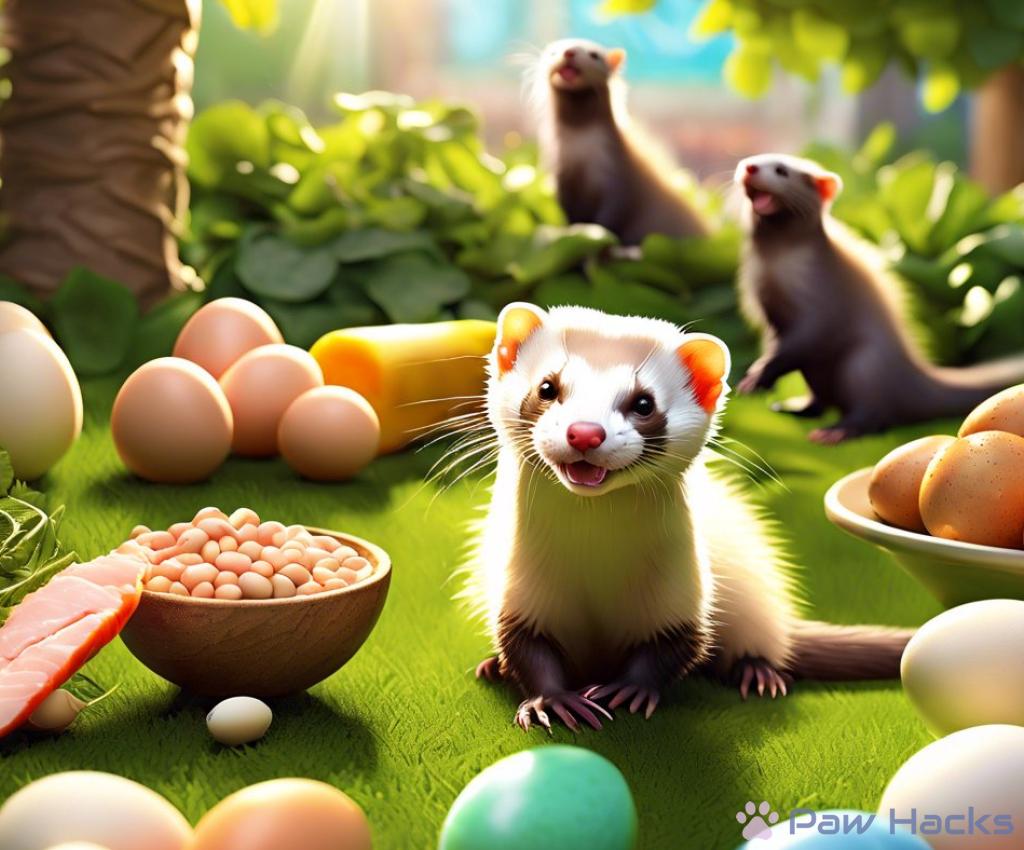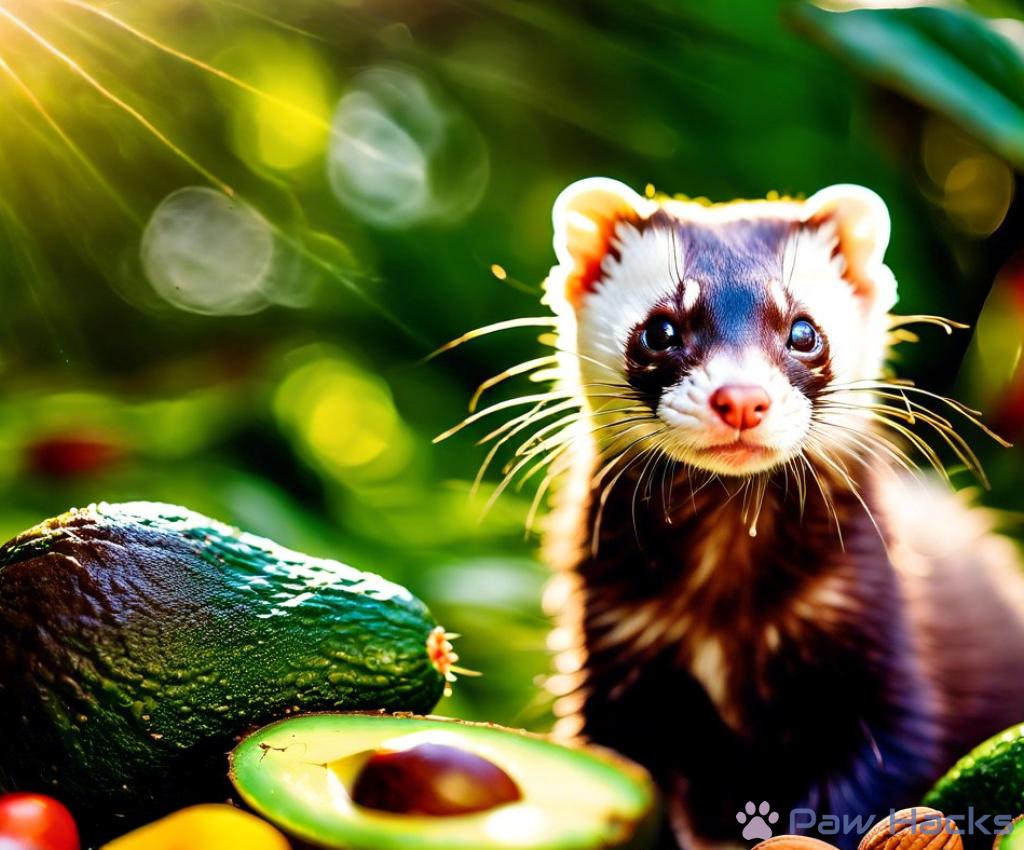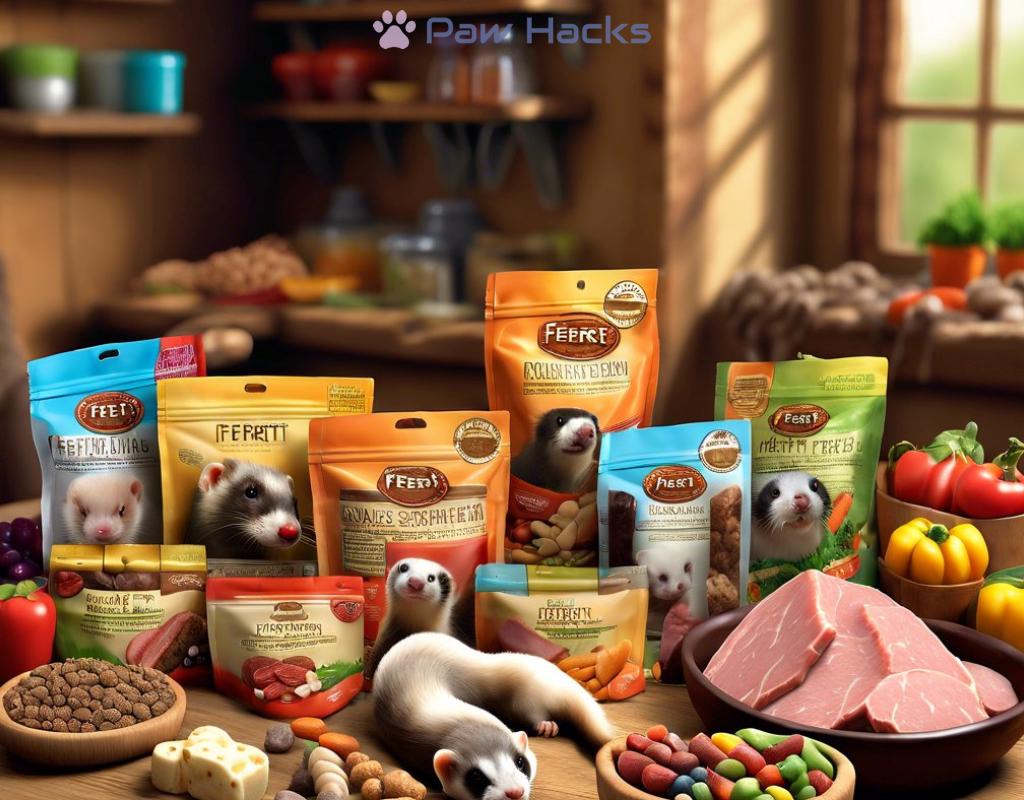Best Foods for Ferret Energy Levels
Power-Packed Proteins: Fueling Your Ferret’s Energy

Ferrets are energetic little creatures that rely heavily on a protein-rich diet to maintain their lively antics. Unlike dogs and cats, ferrets are obligate carnivores, meaning they thrive on a diet that primarily consists of meat. Understanding their dietary needs is essential for keeping your ferret healthy and full of energy.
Protein serves as the cornerstone of a ferret’s diet, contributing to muscle development, energy levels, and overall health. Ferrets’ bodies metabolize protein differently than those of other pets, meaning they require a higher concentration of protein in their food. This is why choosing the right sources of protein is crucial.
- Animal-Based Proteins: The best proteins for ferrets come from animal sources. Options include chicken, turkey, duck, and lamb, which should be the primary ingredients in their food.
- Fish Proteins: Fish like salmon can also be included occasionally, providing omega fatty acids that support skin and coat health.
- Insects: Don’t forget about insects like crickets and mealworms, which are not only a great protein source but also mimic what ferrets might hunt in the wild.
When selecting food for your ferret, it is important to read the labels carefully. Look for high-quality commercial ferret foods that list meat as the first ingredient. Avoid foods that contain fillers like corn or grains, as these can lead to energy slumps.
| Food Type | Protein Content | Benefits |
|---|---|---|
| High-Quality Ferret Kibble | 30-40% | Convenient, balanced diet |
| Raw Meat | Varies | Natural diet, promotes hunting instinct |
| Freeze-Dried Raw Food | 40-50% | High protein, easy to store |
By prioritizing protein in your ferret’s diet, you can help ensure they have the energy to play, explore, and thrive. Always consult with your veterinarian for tailored recommendations that suit your ferret’s specific needs.
Essential Fats: The Key to Vibrant Ferret Health

While proteins are crucial for your ferret’s energy, essential fats play a significant role in maintaining overall health and vitality. Just as in humans, fats are an important component of a balanced diet for ferrets. They not only provide a concentrated source of energy but also support various bodily functions, including brain health and skin integrity. Understanding the types of fats your ferret needs can help you formulate a diet that promotes optimal health.
Ferrets require fats that are derived from high-quality animal sources. Animal fats, such as those from chicken or fish, are beneficial as they offer essential fatty acids like omega-3 and omega-6. These fatty acids contribute to a shiny coat and healthy skin, while also supporting the immune system. Unlike carbohydrates, which can lead to weight gain and other health issues when consumed in excess, fats offer a more efficient way for ferrets to obtain energy, making them essential in their diet.
Not all fats are created equal. When selecting food for your ferret, it’s important to differentiate between healthy fats and those that can be detrimental to their health. Healthy fats are predominantly found in animal-based foods and are easily digestible. In contrast, unhealthy fats often come from processed ingredients and can lead to obesity and other health concerns.
By incorporating healthy fats into your ferret’s diet, you can enhance their energy levels and improve their overall well-being. For instance, fish oil is an excellent source of omega-3 fatty acids and can be added to their food to boost both energy and coat quality. Similarly, chicken fat is often included in commercial ferret foods for its energy density and palatability.
Finding the right balance of fats in your ferret’s diet is key to maintaining their energy levels. Too much fat can lead to weight gain, while too little can result in a lackluster coat and diminished energy. As a guideline, a ferret’s diet should contain about 15-20% fat content. Always check the nutritional label to ensure you’re providing a diet that meets these standards.
| Food Type | Fat Content | Benefits |
|---|---|---|
| High-Quality Ferret Kibble | 15-20% | Convenient and balanced |
| Fish Oil | Varies | Boosts omega-3, skin health |
| Raw Meat | Varies | Natural fats, highly digestible |
By paying attention to the types and amounts of fats in your ferret’s diet, you can help ensure they remain energetic and healthy. Always consult your veterinarian for personalized advice on what best suits your ferret’s unique needs.
Hydration Matters: Keeping Your Ferret Energized
While a protein and fat-rich diet is vital for your ferret’s energy, hydration is equally important in maintaining their overall vitality. Ferrets, like all animals, need access to clean, fresh water to facilitate various bodily functions, including digestion, nutrient absorption, and temperature regulation. Dehydration can lead to lethargy and a decline in energy levels, making it essential to ensure your ferret remains properly hydrated throughout the day.
Recognizing the signs of dehydration can help you intervene early. Common indicators include dry gums, less frequent urination, and a decrease in playful behavior. If you notice your ferret is not drinking enough water, it’s crucial to act swiftly. Increasing their water intake can be as simple as providing a fresh bowl of water daily and ensuring it’s easily accessible at all times. Additionally, some ferrets prefer running water, so consider investing in a pet water fountain to encourage drinking.
In addition to providing water, you can support your ferret’s hydration through their diet. Certain foods contain higher moisture content, which can aid in keeping your ferret hydrated. Wet or raw diets, such as those that include fresh meats, can provide additional hydration compared to dry kibble. Furthermore, incorporating broths or gravies into their meals can enhance flavor and encourage more water consumption. Remember, a well-hydrated ferret is a happy and energetic ferret, so prioritize hydration alongside their nutritional needs.
Nutrient-Rich Treats: Boosting Energy the Fun Way
When it comes to keeping your ferret lively and engaged, nutrient-rich treats can be a game changer. Not only do these delicious morsels provide quick energy boosts, but they also make training and bonding moments even more enjoyable for both you and your furry friend. Incorporating the right treats into your ferret’s diet can complement their main meals while ensuring they receive essential nutrients for optimal health.
Choosing the best treats for your ferret requires a keen eye for quality ingredients. Look for treats with high protein content, preferably sourced from animals, as these align with your ferret’s dietary needs. Treats made from fish, chicken, or even freeze-dried meats can provide the perfect energy lift while satisfying their natural hunting instincts.
Natural treats can significantly enhance your ferret’s overall energy levels while promoting a healthy lifestyle. Freeze-dried meats, such as freeze-dried chicken or liver, are excellent options that retain their nutritional value while being convenient to store. They can be offered as a reward during playtime or training sessions, making every moment spent together more rewarding.
Another great option is high-protein snacks like small pieces of cooked eggs or low-fat cheese. These protein-packed delights not only energize your ferret but also provide a tasty incentive for them to engage in physical activities. However, it is essential to offer these treats in moderation to avoid any digestive issues.
If you prefer to shop for treats, there are numerous commercial options designed specifically for ferrets. It’s crucial to scrutinize the ingredient list to ensure that the treats are free from artificial additives or fillers. Look for products that list animal protein as the first ingredient and contain minimal carbohydrates. Keep an eye out for treats enriched with vitamins and minerals, as these can contribute to your ferret’s overall health.
Additionally, consider the texture of the treats. Ferrets often enjoy crunchy or chewy treats that mimic the texture of their natural prey. This not only keeps them stimulated but also supports dental health by reducing tartar buildup. By offering a variety of textures and flavors, you can keep your ferret engaged and excited about mealtime.
| Type of Treat | Protein Content | Benefits |
|---|---|---|
| Freeze-Dried Meat | High | Nutrient-dense, easy to store |
| Cooked Eggs | Moderate | Rich in protein, versatile |
| Commercial Ferret Treats | Varies | Convenient, specially formulated |
By integrating nutrient-rich treats into your ferret’s diet, you not only enhance their energy levels but also strengthen your bond through interactive feeding experiences. Always remember to balance treats with their regular diet and consult your veterinarian for personalized recommendations tailored to your ferret’s specific needs.
Understanding Ferret Metabolism: Tailoring Diet for Optimal Energy
To truly understand how to fuel your ferret’s vibrant energy levels, it is essential to dive into the intricacies of their metabolism. Ferrets possess a unique metabolic rate that is significantly higher than that of many common household pets. This increased metabolic activity means that they require a specialized diet that not only meets their protein needs but also aligns with their rapid energy expenditure. Tailoring their diet can be the key to unlocking boundless energy and health.
Ferrets metabolize food differently, processing protein and fats at a much quicker rate. This fast metabolism is a biological advantage that allows them to sustain high energy levels for their playful antics. Because of this, it’s crucial to offer meals that are rich in animal-based proteins and healthy fats, as these are the primary sources of energy they rely on. A diet lacking in these nutrients can lead to lethargy and a decline in overall health, making it vital for ferret owners to select appropriate food options.
When crafting a diet for your ferret, consider their need for frequent meals throughout the day. Unlike humans, who can thrive on three meals, ferrets benefit from smaller, more frequent feedings that keep their energy levels stable. Incorporating a variety of high-quality proteins and fats into their diet ensures that their energy levels are consistently replenished. Consider rotating between different protein sources, such as chicken, turkey, and fish, to provide a diverse nutrient profile.
Additionally, incorporating moisture-rich foods can further enhance their energy levels, as hydration plays a critical role in their metabolic processes. Including wet or raw diets, which are often higher in moisture content, can help maintain their hydration and energy levels. A well-rounded diet tailored to their specific metabolic needs can significantly improve their vitality and overall well-being.
Share this content:



